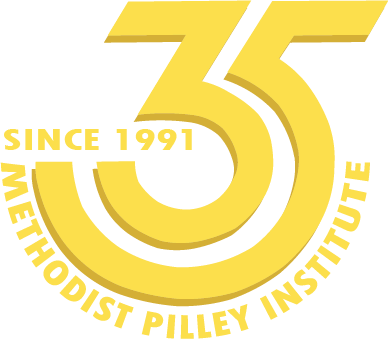| SIBU:If there is a skill that demands social workers to acquire in dealing with every facet of society, it is resilience.
That is because even the most passionate social workers would experience burnout if there were an absence of a strong coping mechanism when addressing society’s evolving challenges. Diploma in Social Work programme leader at Methodist Pilley Institute (MPI), Boon Nyuk Phin, said her programme was designed to train her students to be resilient to face challenges both in their career and in their lives. According to her, most of her students have great passion for creating a better place for the community. However, she always warned them that passion alone would not suffice. Only the right attitude with the right tools they gained through the study could create resilience. “Social work for me; first thing first, you need passion to help people. That is because you are dealing with different kinds of social issues, cases, and problems. So, passion is important. “Then, you need to be equipped with skills, knowledge and values because we are not just helping them, we are teaching people how to fish; we want to empower them so that they are able to stand on their own two feet; to be self-reliant and be independent,” she pointed out. She explained that just like doctors, social workers are also in a helping profession and require all the right knowledge and skills to assist the communities or the target group. She said with the right knowledge, social workers can differentiate between their required jobs and charities. Those are two different things. One of the most important lessons that she incorporated in her class was field experience – whereby she brought along her students to different field works. There, students would experience interacting with the homeless, victims of domestic violence, ex-convicts or drug addicts. This would prepare them both mentally and in attitude when they do their social work after getting their diploma. One of her former students, Tang Guang Hao, was a great example of how attitude enabled him to complete his studies in MPI. According to her, Guang Hao, who has physical challenges and had undergone about 11 surgeries, was originally enrolled in Diploma in Early Childhood Education (ECE). Then he changed to Diploma in Accounting and again he dropped the programme and took up Diploma in Social Work. For her, while physical challenges could be one of the factors that caused him to be unable to cope with ECE and Accounting, the main problem was his attitude and his focus in his study. “The moment he changed his attitude; despite it not being easy, he was able to thrive and enjoy this journey. He learned the way of growing himself also. I think this is one of the most important values of social work,” she pointed out. She added that it does not matter what programmes, any students with good attitude would be able to do well in their studies. Despite his physical challenges, Guang Hao is now working at House of Joy Kuching as a trainer for people with disabilities. Another great example was Lili Rudy, whose right attitude and resilience helped her to contribute something to the community despite her undocumented status. “Lili had a good attitude – she and her cousin Hesty were among the first batch of Diploma in Social Work students. Of course, at first, just like any other Sijil Pelajaran Malaysia (SPM) leavers, they were in the transition period and tried to adapt to a new environment. “However, over time, they learned to adapt and do the tasks that all students must do – assignments, reports, practicums and so forth. “Lili was actually quite vocal on her rights and the rights of her community and women’s rights. So, she has the passion and when we equipped her with knowledge, values and skills, she started to think of how she could help her own communities,” she said. In one of the field activities, Boon, Lili, together with another lecturer, visited Lili’s community and provided some tuition and interactive activities. She believed that Lili began to plant the seed on the importance of education to change their lives in her family members and the community. However, the real challenge was not how she could contribute to society, the real challenge was knowing that her life would remain unchanged due to her status. No company would be willing to accept her despite her qualifications, and the only way to survive is to be self-employed. This could be frustrating and demotivating and sometimes, giving up is the only ideal way. However, since graduating from MPI, despite her undocumented status, Lili is providing classes not just in basic reading and writing and numerical skills, but also life skills to undocumented children from her community in Kapit. Right now, one of the big corporates in Sarawak engaged Lili as one of the teachers in the company’s corporate social responsibility (CSR) project to teach undocumented children in her community. Lili is now being given a monthly allowance from the corporate. “This is what I meant when I talk about being resilient. They are being trained to be resilient, to be self-sustainable. With passion and resilience, she can make a difference not just to the community, but to herself too,” she enthused. While Lili can be considered MPI’s success story, it is a different kind of success story. “Both Hesty and Lili are the two lucky ones; they got to study, received their SPM and then diploma. “My hope was for them to bring the community out from poverty; use the knowledge and skills acquired and empower their own community and let the community also grow together with them. “Continue to fight for their own citizenship and for her community. It is not their fault that they are undocumented, they lived very far inside the interior and thus missed out on documentation,” she said. Boon is very proud of not just Lili or Guang Hao or Hesty, but all her students. Her goal is simple: with the certification, go out and be good social workers or any profession that the students decide to venture into. So, how does studying Diploma in Social Work in MPI help the students in their career in the future? Boon said the diploma is a structured programme to enable them to become effective and efficient social workers by focusing on casework, group work, and community work. Every student needs to do interviews, conduct research or go for a few practicums and field experiences. Then comes the second question: Is Social Work for everyone? In her reply, Boon reiterated that passion is important, but passion alone would not suffice. “We need to help our clients to be independent, not causing them to be dependent. So, this is why I can say, everyone can do charity work, but social work needs specific passion and also to be equipped with different kinds of skills to deal with different people and in different situations. “This is important because social issues will keep on changing and we need to keep ourselves updated with the current issues,” she said. While Malaysia is picking up in the social work field, countries such as Singapore, Taiwan, Australia, and so forth, social workers are in demand. According to her, in Singapore, even the National University of Singapore (NUS) is offering a Social Work programme. “It is simple, we all need welfare, and we need social workers. Artificial Intelligence (AI) cannot help in this. “We still need human touch, human interactions and human connectivity when it comes to helping people,” she said. She also said that countries need social workers because of the aging population, more children are born with disabilities and different kinds of pressures due to globalisation. “So, we need different kinds of support to support the community. So, social work is in fact a popular job, maybe not in Malaysia yet, but globally,” she said. The Diploma in Social Work is a two-and-a-half-year programme accredited by the Malaysian Qualifications Agency (MQA). It covers three components – knowledge, skills, and values. Graduates with this certification are not only eligible to work in Malaysia, whether in non-governmental organisations (NGOs) or government agencies, but they also have job opportunities abroad. Meanwhile, the passing of the long-awaited Social Work Profession Bill has been pending in Parliament since 2010. The ongoing delay in tabling the bill is said to have hindered the regulation of the profession and the development of the necessary manpower to support the sector. The Malaysian Association of Social Workers (MASW) and UNICEF have been calling on the government to take swift action to professionalise social work in Malaysia. |
|
|
|
|





